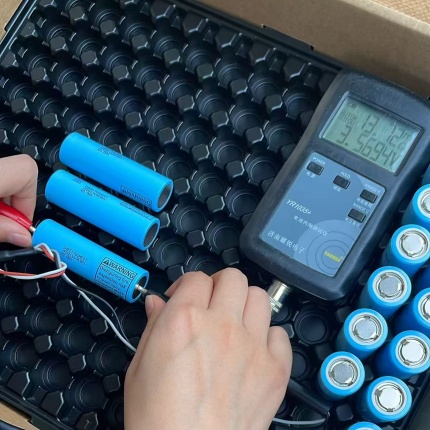With ever more electric vehicles on the road, regulators and automakers are considering what can be done with the millions of batteries that power EVs after they’re spent. Even when their useful life is over, EV batteries contain valuable lithium that could theoretically be recycled and used in new batteries, but coming up with a cost-effective way to do so is critical.
With ever more electric vehicles on the road, regulators and automakers are considering what can be done with the millions of batteries that power EVs after they’re spent. Even when their useful life is over, EV batteries contain valuable lithium that could theoretically be recycled and used in new batteries, but coming up with a cost-effective way to do so is critical.

Now, a group of University of Wisconsin–Madison chemists are hopeful they’ve found a solution, and they’re already filing patents and courting global carmakers.
The work has been led by Kyoung-Shin Choi, a UW–Madison chemistry professor who specializes in developing electrochemical processes for various ends. In this case, Choi and her colleagues have come up with a proof of concept for using electrochemistry to extract lithium from spent lithium-iron-phosphate (LFP) batteries, which have been widely adopted by major EV manufacturers like Tesla and China’s BYD.
Lithium-based EV batteries come in a few flavors, and while LFP batteries have lower energy densities than batteries that are based on elements like nickel, manganese, and cobalt, they’re significantly cheaper to produce and safer to operate. On the flip side, iron and phosphate aren’t worth much compared to nickel or cobalt, making LFP batteries less attractive from a recycling perspective.
“At this point, there’s no economically compelling method to recover lithium from spent LFP batteries even though the market is shifting to them,” says Choi, who noted that obtaining lithium from mines and brine deposits has many negative environmental consequences, even if it may be cheaper than recycling.
“Access to these natural lithium resources is also limited,” Choi says. “We need an innovative method that makes lithium recovery from spent LFP batteries commercially viable to support a circular and competitive battery economy.”
The problem has become all the more pressing for global carmakers since the European Union has new regulations aimed at reducing the environmental impact of batteries. Beginning in 2031, batteries in new EVs sold within the EU will be required to incorporate a minimum percentage of recycled lithium.